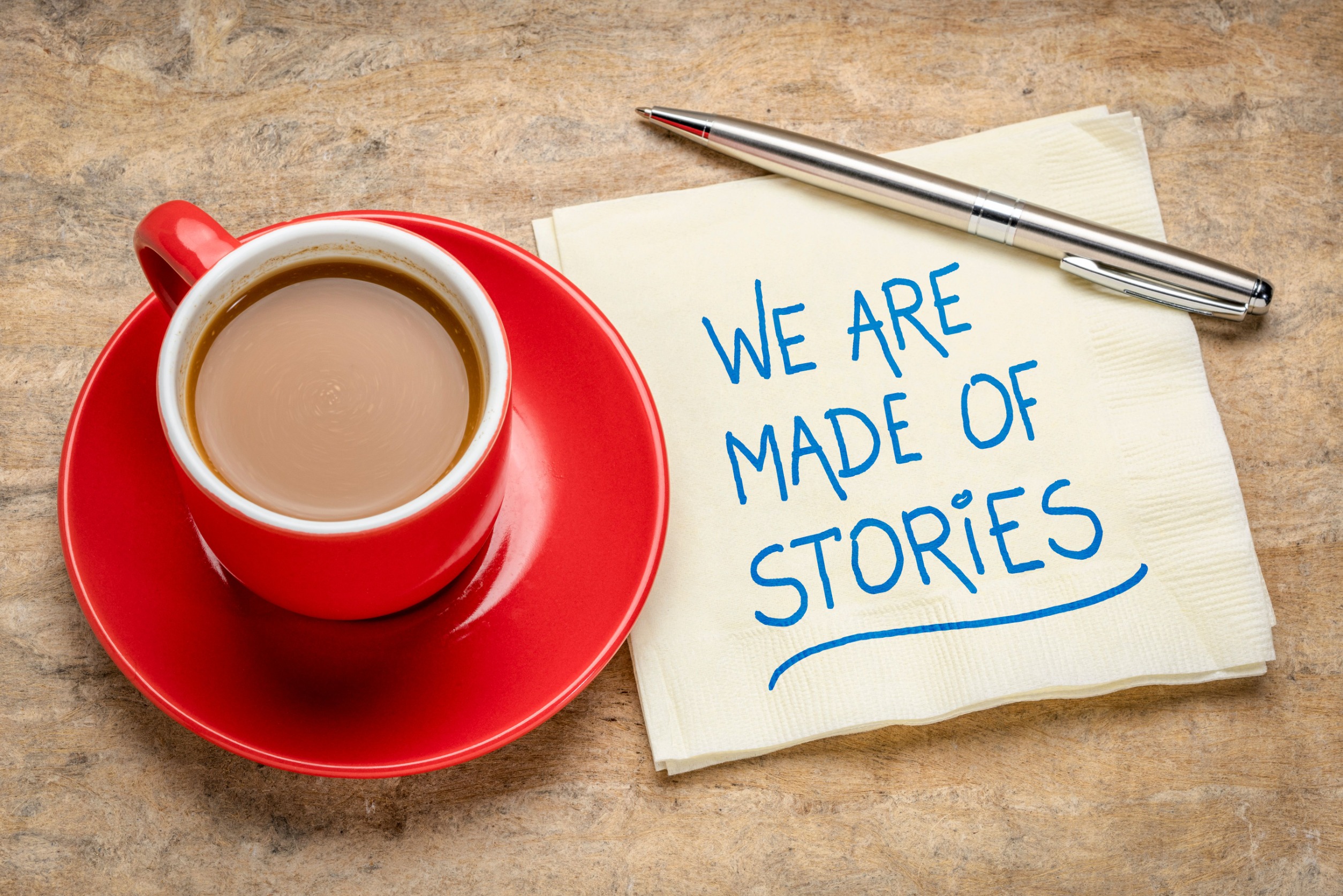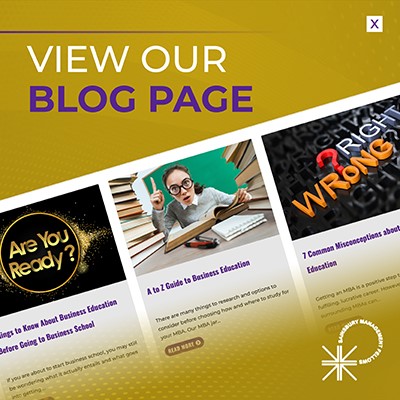NEWS | Developing a Story for Your MBA Application
Published On: Tuesday, 1st Nov 2022

When planning your application for business school you’ll often hear the phrase ‘MBA story’ and the opinion that presenting a good one is considered one of the most important parts of your candidacy. This is true in many respects so it’s worth thinking of your whole MBA application from the viewpoint of telling the story of you. It’s also important to allocate time and effort into developing your personal story to be as focused, logical, and unique as possible.
Before accepting you for MBA study, the admissions committee at your preferred business school need to know what impact you may make in the business world and what makes you specifically worthy of a place. The best way to determine this is to understand some of your background, past accomplishments as well as your future career goals. Your ‘MBA story’ is your best opportunity to explain why you should be accepted immediately and the strength of your story will go a long way to help you achieve this.
However, it’s often difficult to understand the areas your story should cover, and personal story development takes some work. In this post we illustrate how to approach this with examples to help you prepare for your MBA application.
Quite simply, your “MBA story” is how you paint a picture of where you have been, what you have done, and where you want to go. It may be useful to think of the MBA programme as a bridge which will help to link your past with your future. The past part of your story should include relevant details of your personal and professional background with the future being your goals and aspirations post-MBA.
Everyone has a personal story, it’s just a question of how to tell it in the best way possible. It will help if you put your authentic self at the centre of your essay as application committees will be impressed at your self-awareness and your ability to present what has shaped you up to this point and how and MBA will help you achieve your career goals.
Preparation is different for every candidate but it’s important to be concise. No-one wants to hear everything that you have ever done or will want to be bowled over by a staggering list of your accomplishments without the personal aspects of your application. It’s much better to include a personal touch than for it to come across as a corporate brochure. Your story will have a greater impact if you take time to show a true reflection of who you are and if your story has a good explanatory flow.
Preparation is different for every candidate but it’s important to be concise. No-one wants to hear everything that you have ever done or will want to be bowled over by a staggering list of your accomplishments without the personal aspects of your application. It’s much better to include a personal touch than for it to come across as a corporate brochure. Your story will have a greater impact if you take time to show a true reflection of who you are and if your story has a good explanatory flow.
It might be useful to think of your story development as a ‘Super CV.’ A chronological list of the important things you’ve done to-date backed up by the reasons why you chose to do them. To get started, make a list of the major things you have done and write them down under these three headings.
- My defining personality traits: to form a true assessment of who you are, it’s a good idea to bring in help as well as recording your own thoughts. You can ask friends, family, and colleagues to give you feedback about your strengths and weakness and above all, what makes you a good choice for MBA study. If that’s not enough or you wish to take things further, you can take online tests to confirm the sense of your overall personality. Once you are happy with the definition you can add this straight into your story outline. It will help to show that you are self-aware and that you have thought through what makes you an excellent candidate.
- My accomplishments: In this section you can include your educational achievements, any work history so far, along with any extracurricular activities, hobbies, and passions. Within your history dig deep to find examples that give your story an interesting flow and work with your narrative. A good way to record what has shaped you is to think about important activities and memories from your past to help paint a picture and build your story. Your examples should demonstrate the ways in which your personality type has worked well for you to this point and show how your work and other accomplishments support your commitment to your field.
- Reasons why I want an MBA now: Your reasons for wanting an MBA will be specific to you such as learning leadership skills or expertise in particular areas of business. In your story you will need to clearly outline what they are. As mentioned earlier, ideally you will be able to explain that studying for an MBA will provide the ‘bridge of knowledge’ between your current skill levels and your overall career goals.
You will need to illustrate that you fully understand how studying for an MBA will help you to accomplish your goals. Awareness of how an MBA will help you develop skills which may be missing or need development will strengthen your story and show that you have an excellent understanding of what an MBA can help you achieve right now.
What I want to do after I gain my MBA and why: Here it’s useful to think about both your short-term goals and the long-term. A certain degree of flexibility is required here as the admissions committee will want to be sure that they can help you achieve your goals, and a plan of a very narrow career path may leave them concerned.
To avoid this, make sure the MBA programme you are applying for is aligned with the industry you are interested in. Your immediate and short-term goals should have some connection to your past experience and accomplishments. Try and demonstrate how the past experiences you have already outlined position you perfectly to achieve your goals when you have your MBA.
Once you have taken time to think through your achievements, passions, and goals you should find a central theme emerging or a unifying idea which you can weave through your application. For example, here is a basic concept story to show the kind of framework you should be looking to work within.
“I am a (insert key personality trait) leader with a background in (insert something from your background). I want to get an MBA now because it will (provide specific resources) that will help me to (insert reasons) as I strive to achieve my career goal of (insert career goal).”
Obviously, this is a simplistic template, but it should give you an idea of how to begin placing the crucial elements in the right places! After you have the basics in place you can work on a more detailed essay and begin to weave in some colour and flow to your story.
The following developed example is by no means complete but shows the main elements of a good personal story, how to approach it and how to tell it in the best way possible. Your background is unique to you so use it to your advantage.
For Anna, our example here, her goals are to help develop ways for the engineering industry to best help low-to-middle income countries in the future.
Anna’s story research has shown that her desire to work in engineering to best help emerging countries is a unifying theme.
Anna’s educational achievements were all good and engineering has been her passion for as long as she can remember. In her spare time at university, Anna volunteered for a charity whose main mission is to provide and improve the supply of clean water to certain parts of Africa.
For her story, Anna will want to explain what motivated her passion for engineering and the charity. There is no right or wrong motivation for a passion. The crucial thing is that Anna can demonstrate a good, logical explanation.
Anna was born and raised in England and developed a keen interest in inequality overseas after conversations with her uncle who had worked in Africa for many years. This experience had a big effect on Anna and introduced her to the concept of global issues at a formative age.
Of course, not everyone will have these exact experiences, but you will have your own theme and will be able to work them into your essay.
At college, Anna was part of the engineering society where she helped to produce a prototype battery which requires less energy to power and raised over £10,000 for her water charity via a JustGiving page and organised events.
Anna has used two particular success stories here, one from college, the other from her personal life to focus on her passion for both engineering and improving conditions overseas.
Anna’s current educational achievements show her application and success at understanding engineering projects and concepts. She is keen, however, to take an MBA to learn a set of new business skills which will help her decision making and advance her as an entrepreneurial thinker.
This is the bridge section you should aim to include in your story. Anna talks about what she is good at but also acknowledges that she lacks certain skills (skills that the MBA will give her) to advance and enhance his career goals.
Anna’s career goals are two-fold. Firstly, she wants to advance to a managerial position with a UK company and establish herself. Long-term, she would like to employ her engineering, management, and project experience in a global setting where she can use her skills to make a significant contribution to low- and middle-income countries.
Career goals don’t all have to be world changing but large or small it is useful that you share the impact you hope to make within your chosen industry. It’s just a case of presenting them in a unique way that shows your passion for your subject.
We all have a story to tell, some more or less interesting than others and no candidate can ever be perfect. The main things to remember are to show that your story has been well thought out and is focused, logical, authentic and unique. If you concentrate on these things, take the time to work on a theme and put yourself at the centre of your presentation you can be confident that you have presented your story in the best possible way.

